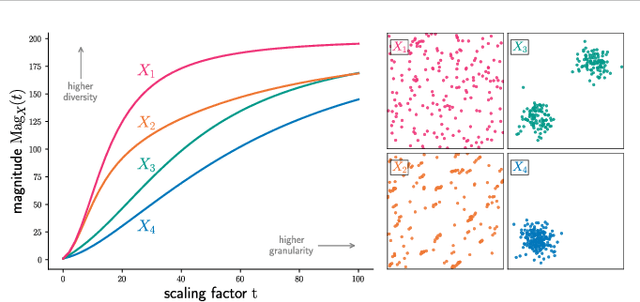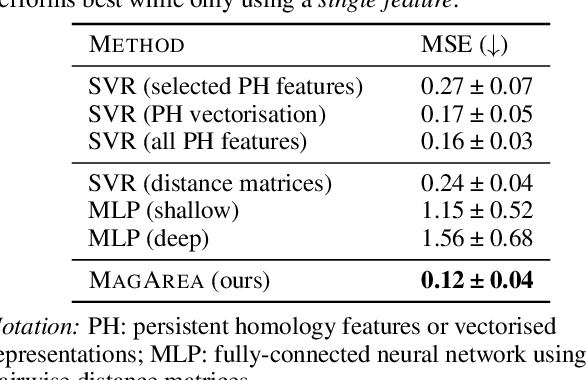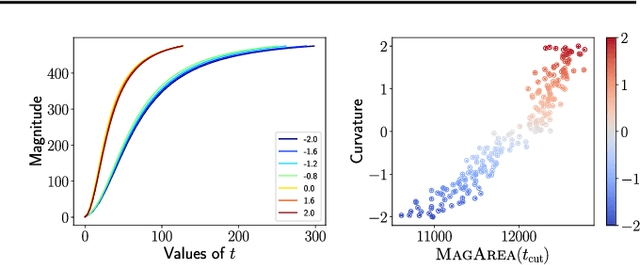Metric Space Magnitude for Evaluating Unsupervised Representation Learning
Paper and Code
Nov 27, 2023



The magnitude of a metric space was recently established as a novel invariant, providing a measure of the `effective size' of a space across multiple scales. By capturing both geometrical and topological properties of data, magnitude is poised to address challenges in unsupervised representation learning tasks. We formalise a novel notion of dissimilarity between magnitude functions of finite metric spaces and use them to derive a quality measure for dimensionality reduction tasks. Our measure is provably stable under perturbations of the data, can be efficiently calculated, and enables a rigorous multi-scale comparison of embeddings. We show the utility of our measure in an experimental suite that comprises different domains and tasks, including the comparison of data visualisations.
 Add to Chrome
Add to Chrome Add to Firefox
Add to Firefox Add to Edge
Add to Edge